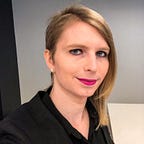Endless Lemons
My statement for the Hope Conference 2016
As read by Yan Zhu on July 24, 2016, Hope Conference 2016, New York, NY.
First, I’d like to thank you all for your warm love and strong support over the years. You never cease to amaze me with how truly extensive and long-lasting your support has been, and I am always hearing about your messages being posted on social media.
In just the last few weeks, I have needed you all more than ever. It has been a roller coaster for me.
I just filed my appeal a few months ago, where I have asked the judges to dismiss all charges or give me a shorter sentence based on: the harsh solitary confinement conditions before my trial, the admission of vague evidence for sentencing, the lack of evidence on charges of theft of information, the vagueness of the definition of “exceeding authorized access” under the Computer Fraud and Abuse Act, and the lack of proof by the government that the disclosures actually harmed the United States’ national security or diplomatic interests.
This last May, I saw my friend Yan for the first time in nearly seven years. If you have any questions about it, feel free to ask her. It was great to see her again and be reminded of all my friends in the tech community.
Today, as is obvious in some of the headlines that we see online — we are in a constant technological arms race, and I think that it’s important to realize that we are always only a single breakthrough away from making the methods of network obfuscation and encryption pointless or unusable.
While I agree that it’s unlikely, it certainly is well within the realm of possibility that we might wake up tomorrow morning and find out that some truly brilliant or devious mathematician or mathematicians have solved the Riemann Hypothesis, throwing entire regions of our encryption arsenal into turmoil. Or, we might wake up and find out that a powerful quantum computer with near perfect error correction has been built, effectively accomplishing the same thing.
It’s important to keep our encryption safe in the post-quantum world. Luckily, you don’t need to be a quantum math or quantum computer expert in order to be able design stronger algorithms to protect our current encryption methods against quantum attacks. These algorithms are classical, and don’t require any kind of complex understanding of anything quantum. We can let the PhDs deal with that.
I am putting together a collection of materials on this topic, and I thought perhaps we could all explore this together during this year’s Aaron Swartz Day Hackathons.
Using SageMath, an open source python-like mathematics software system, I am hoping to start things off with a generic construct that anyone can easily start working from.
I’d like to leave you with a little bit of Sage wisdom from my own life experience so far:
“If life gives you endless lemons, then raise capital, industrialize your process, market aggressively, expand everywhere, and totally dominate the lemonade industry.”
Much love,
Chelsea
You can work towards improving my situation, by donating to my defense fund, writing me a letter , and following my accounts on Twitter and Medium.
